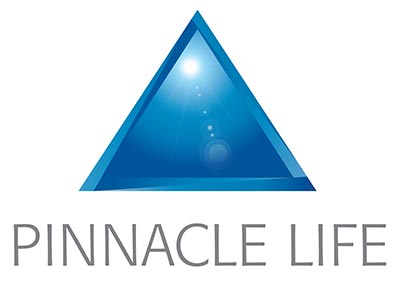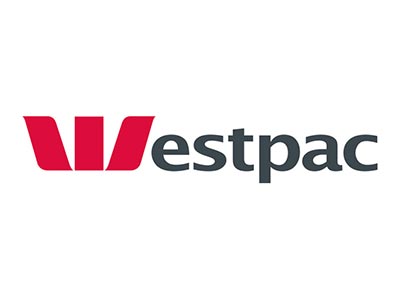Purchasing a home is likely to be the most important and expensive purchase you’ll make in your life and making sure that you keep up with you mortgage repayments is extremely important to ensure you protect your investment.
Mortgage, income & rent insurance
If you're unable to keep up with your mortgage payments whether as a result of an accident, illness or loss of income - you have to ensure you’ll still be able to make the necessary mortgage payments and this is exactly what mortgage insurance will help you do. More commonly referred to as mortgage, income and rent insurance – mortgage insurance is an absolute must for anyone that does not have a life insurance policy. Mortgage insurance can also be taken out for any investment property that you may have – so in addition to protecting your family home you can protect your investments!
If you're unable to work for whatever reason, the policy will pay out a specific percentage of your usual income so that you can cover your mortgage payments and other immediate expenses. This can be anything from 40% of your monthly income to 50 – 160% of your monthly mortgage repayment or rent. You may be wondering why anyone would need to take out a policy that covers more than 100% of your monthly mortgage installment; this additional payout will come your homeowners insurance (the insurance that covers your home and contents) and to make up for any possible variable rate increases for those who do not have a fixed-interest mortgage. Women with mortgage insurance may apply for a waiver of their mortgage insurance installments when they go on maternity leave – which will certainly help ease the financial pressure that a new baby will bring along.
Home insurance vs. Mortgage insurance
There is a big difference between home insurance and mortgage insurance; home insurance will cover your home and belongings and mortgage insurance will cover your mortgage payments only. Banks and other lenders will probably make it compulsory for you to take out home insurance because they want to ensure that they protect their own investment. In the same way many banks will require that anyone with a mortgage carry mortgage insurance. This should be at a minimum LMI or, Lenders Mortgage Insurance which essentially protects the bank or lender from you defaulting. If you do not take out your own mortgage insurance the bank or loan provider will probably add Lenders Mortgage Insurance to your monthly loan repayment. Lenders Mortgage Insurance is compulsory for individuals who have put up a deposit of 20% or less when taking out a home loan.
The best way to look at mortgage insurance is as a back-up plan in the event that you lose your job, have an accident or fall ill. It is important to note however, that in New Zealand all citizens, residents and visitors are covered by the ACC or, Accident Compensation Corporation for any personal injuries incurred. You will be compensated for any lost earnings if you are hospitalized or require time to recover at home and are unable to work however, this only applies to critical injuries and you will not be compensated if you lose your job or fall ill. If you do have an accident and receive compensation from the ACC you can also claim from your mortgage insurance company – which will certainly provide some much needed financial relief. If you die, become terminally ill or permanently disabled while covered by mortgage insurance – the insurer will pay a set amount towards your mortgage – usually this amount is capped at $500 000. If you have life insurance – than your life insurance will likely cover the entire outstanding amount and so, in such a case – you may not need mortgage insurance as your life insurance policy should cover your entire home loan in addition to any early repayment fees. If you have income insurance than you do not need to apply for mortgage insurance since both will cover you for death, terminal illness diagnosis, partial or complete disability and redundancy in the event that you lose your job. Income insurance generally pay out more than mortgage insurance (up to 75% of your monthly income), but this does depend on the type of policy that you have. If you are temporarily disabled your mortgage insurance will continue to compensate you for up to two years, depending on the type of policy that you take out. If you happen to lose your job, your mortgage will be covered for up to six months however, this is an optional benefit that you are not required to add to your policy. When taking up a policy your age is a big factor since as you age you become more likely to fall ill - so even though the outstanding balance on your home loan may get smaller, you mortgage insurance premiums may stay the same or even increase up until the age of 65, when your policy will end.
The length of time that you continue to receive compensation from your mortgage insurance will depend entirely on the type of policy that you have taken out. If you opt for a shorter benefit period – such as 6 months than your premiums will be lower than someone who has opted for a longer coverage period. It is important for you to be aware of the stand down period which is essentially a waiting period before the insurance company will begin to payout. If you opt for a longer stand down period this will lower you monthly premiums while opting for a shorter stand down period means that your premiums will increase accordingly. If you have an emergency fund that could see you through at least 3-6 months without your normal income than choosing a longer stand down period makes a lot of sense. The reality is, that most people do not have an emergency fund and in such a case opting for the shorter stand down period is the way to go since you could easily lose your home while waiting for your compensation – which means you’ve been paying your mortgage insurance for nothing. It is not necessary for you to accept the mortgage insurance offered by you bank- shop around for quotes so that you can find a policy that best suits your needs and budget. There are many great online mortgage insurance comparison tools that can help you decide on which insurer and policy will best suit your needs – s make use of these and speak to your financial advisor if needed.








